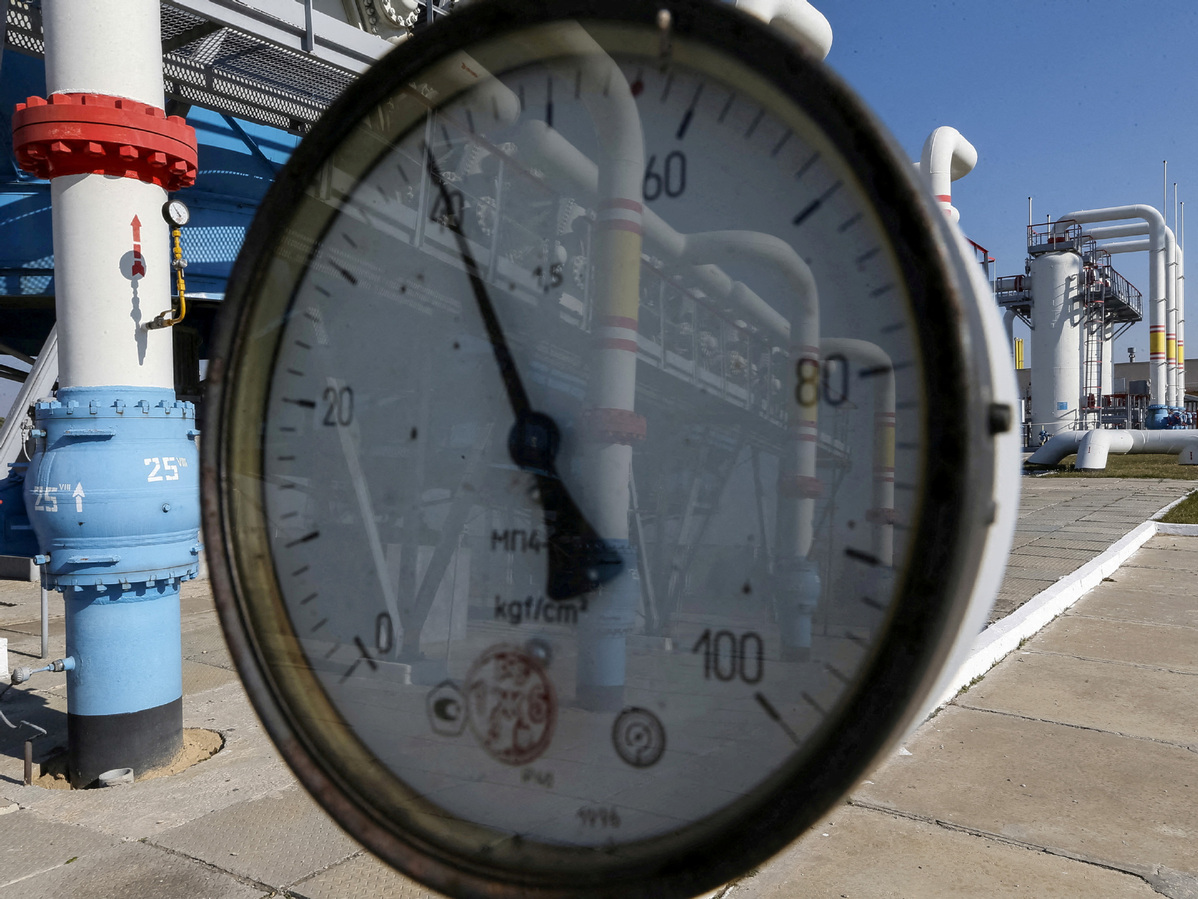
FILE PHOTO: A pressure gauge is seen at a gas compressor station and underground gas storage facility in the village of Mryn, Ukraine, Oct 15, 2015. [Photo/Agencies]
VALLETTA, Malta — A halt in Russian gas transit through Ukraine has sparked fears of supply shortages and soaring energy costs, particularly in landlocked European nations like Slovakia.
Both Ukraine and Russia announced the stoppage on Wednesday, pushing some EU countries to resort to costlier energy alternatives.
Slovak Prime Minister Robert Fico on Wednesday said that stopping gas transit through Ukraine to Europe will have "severe consequences for all of us in the European Union, but will not harm Russia".
The stoppage follows Ukraine's decision not to renew a 2019 gas transit agreement between its state-run Naftogaz and Russia's Gazprom, which expired on Tuesday.
"In the interests of national security, the transportation of Russian natural gas through the territory of Ukraine was stopped," the Ukrainian Energy Ministry said in a statement on Wednesday. Similarly, Gazprom confirmed that it has stopped the gas supply due to the expiration of key agreements and Ukraine's refusal to renew them.
In a letter to the European Commission on Sunday, Fico condemned Ukraine's gas transit halt as irrational and warned that it would heighten tensions and harm the EU more than Russia. He also indicated that his government might consider measures such as cutting electricity supplies to Ukraine.
Slovakia, heavily dependent on Russian gas, is among the worst-hit countries. It has been importing about 3 billion cubic meters of natural gas from Russia through Ukraine annually, accounting for two-thirds of its demand.
However, the European Commission downplayed the potential impact of the latest move, with a spokesperson saying that the European gas infrastructure is "flexible enough" to provide gas of non-Russian origin to central and eastern Europe via alternative routes, and that it has been reinforced with significant new liquefied natural gas, or LNG, import capacities since 2022.
Mark Cigoj, editor-in-chief of the Croatian weekly 7 Dnevno, has said that Slovakia, Austria and Hungary are particularly vulnerable, given their reliance on Russian gas and lack of direct access to LNG imports.
Slovakia's Regulatory Authority for Network Industries, the country's energy regulator, has forecast household gas price increases of 15 percent to 34 percent in 2025 without state energy assistance.
To cushion the impact, the Slovak government has allocated about 235 million euros ($244 million) for energy aid, further straining the country's tight budget.
SPP, Slovakia's state-owned gas utility, on Wednesday assured continued supply but acknowledged the increased costs of alternatives.
Moldova, which imports about 2 billion cubic meters of gas annually from Russia via Ukraine, enacted measures on Wednesday to cut electricity usage by at least 30 percent.
The measures include limiting street lighting and stopping escalators in some public and commercial buildings.
Xinhua